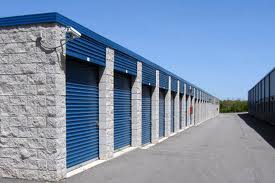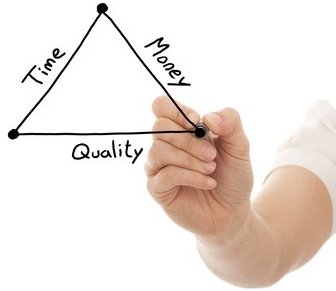Are your household goods worth more than 60 cents per pound?
You are relocating soon. You have qualified several movers. You have received your estimates and chosen your professional mover. Congratulations, your due diligence should result in a stress free move.
There is at least one more important factor you need to evaluate and be prepared to make a final decision on. That factor is known as "Declaration of Value", "Declared Valuation" or "Limitation of Liability" in the moving industry and more specifically on the mover's bill of lading. (The bill of lading is the contractual agreement that you enter into with the mover.)
The moving company you have qualified and ultimately chosen is most certainly insured. But insured means he carries workers compensation, automobile liabily, general liability and cargo insurance. (These are are mandatory minimum policies that your mover should have in place.) However, none of these insurances protect the items a/k/a your possesions that the mover actually packs or moves for you.
When moving with a professional moving company you will be required to place a dollar value on your possessions. Free and included with most movers' pricing is a value of only 60 cents per pound per article. This by itself is usually grossly inadequate. I would equate this extremely limited valuation with no insurance or self insurance. (Please note: Declared Valuation is technically NOT insurance, but rather a limitation of the moving company's liability.) Most movers will offer a variety of increased declared valuation options, such as, depreciated and full replacement valuation.
The following information derives from The Massachusetts Movers Association Consumer Affairs Committee and is specifically relevent to all persons moving within the state of Massachusetts who utilize the services of a professional moving company that are members in good standing of the Massachusetts Movers Association. (Although this information is representative for a general understanding throughout the moving industry, please consult with your moving company directly to understand any differences that may affect your individual relocation situation.)

WHAT ARE MY CHOICES?
OPTION A: 60 CENTS PER POUND PER ARTICLE
This is minimum coverage, and you pay no extra. If your goods are damaged or lost, the Mover's maximum liability to you under this option is 60 cents per pound per article. If your goods are damaged or lost, you will be entitled to recover the lesser of the decrease in value of the item lost or destroyed, or 60 cents multiplied by the weight of the lost or damaged article.
In any event, no matter what happens, if your goods are damaged or lost, the Mover's maximum liability to you under this option is 60 cents per pound per article. Example: 10 pound chair x 60 cents = $6.00. You would be allowed a maximum of $6.00 for that particular chair. To choose this option, you must, in your own handwriting, write the letter "A" in the box on the bill of lading, and sign and date below.
OPTION B: DECLARED LUMP SUM VALUE
Under this option, you declare a lump sum value for your entire shipment, subject to a minimum of $1.25 per pound times the weight of your shipment (you may declare more, but not less). For example, if your shipment weighs 10,000 pounds, the lump sum value would be $12,500 (10,000 x 1.25). That amount will be the Mover's maximum liability to you. Ask the Mover about the charge for this coverage. If there is a claim, the Mover is not obligated to write out a check to you for the entire declared shipment value! Each damaged item will be repaired, replaced, or a cash settlement may be offered, according to its depreciated value, not to exceed the shipment's declared value (in this example the declared value is $12,500). The Mover will apply depreciation to any claim made under this option.
This is the option which will apply if you do not select any option. If your signature does not appear in the valuation section of the bill of lading, the Mover will automatically apply option "B," and the Mover will charge accordingly.
Example: 4,000 pound shipment @ $1.25 per pound = $5,000 of declared value.
Any damaged item will be reasonably repaired, replaced, or a cash settlement may be offered, at the option of the Mover. Remember, the Mover will charge for this option.
OPTION C: FULL REPLACEMENT VALUE
Full "replacement" value protection is non-depreciated coverage. Not all Movers offer this option. This option provides for the repair or replacement of the item, whichever is less, to restore the piece to its condition immediately before the loss.
This option is based on a minimum declared value of $4.00 per pound (you may declare more but not less). The Mover will not apply depreciation under this option.
Example: 4,000 pound shipment @ $4.00 per pound = $16,000 of liability coverage.
Remember, ask the Mover about the charge for this option.
CERTIFICATE OF INSURANCE
Not all Movers offer this option. Your Mover can arrange for transit insurance coverage in the amount you specify. A Certificate of Insurance should be provided to you. You may be able to choose either depreciated or "full replacement" insurance; be sure to ask if there is a deductible. You may also want to check your own homeowner's policy to see if it provides coverage.
Not all Movers can give you a Certificate of Insurance. This is not Movers' liability, but an agreement between a licensed insurance company and you. There will be a charge for this coverage.
WHAT IF I DON'T CHOOSE ANYTHING?
If you don't make any notation on the bill of lading, the Mover's maximum liability to you under the tariff is $1.25 times the weight of the total shipment. Example: Your shipment weighs 10,000 pounds x $1.25 = $12,500 value. It works the same way as a declared value (see Option B). This is depreciated value, not replacement coverage. Unless the Movers' tariff provides otherwise, there will be a charge for this coverage.
WARNING:
The above information represents a summary of each option. It is not intended to address all of the issues or provisions of the movers' liability. Nor is an employee or sales representative authorized to make recommendations as to the type of coverage or the amount of coverage you may require. You should consult an appropriate insurance or other professional to assist you in this decision.
POINTS TO REMEMBER...
- Your Mover will do the best job possible and try to avoid any loss or damage. Accidents do happen, so remember:
- The "Bill of Lading" is your contract (receipt) with the Mover. Both parties should sign the "Bill of Lading" in the appropriate places and agree to its terms and conditions.
- In determining the value you declare, you should consult an appropriate insurance or other professional to assist you in this decision.
- The examples given in this brochure represent the minimum amount that must be declared; you can go higher but not lower.
- Be aware of the coverage option you chose at the time of the move and do not expect the Mover to change the coverage "after the fact." Your signature on the bill of lading and the option you select under Declaration of Value will determine your coverage.
- If your goods are going into storage at a licensed storage warehouse, different coverages and contract terms may apply.
- Be sure you have a copy of the bill of lading and (if applicable) inventory. Be sure any damage is noted on the bill of lading and (if applicable) inventory.
- At the time of delivery, you or your agent must make notations on the bill of lading (or inventory, if applicable) showing any exceptions regarding the condition of the goods.
- Keep the damaged article and packing material for inspection (it will help substantiate your claim). It may be possible to replace pieces (such as glassware or china).
- The burden of proof is on you, the customer, to show loss or damage to your property.
- All claims must be filed in writing within 15 days of the move. (Call your Mover's office if you need a claim form). Remember, the longer you wait to file your claim, the more difficulty you may have in recovering your losses.
- All of the movers' charges must be paid prior to the mover processing your claim.
BEFORE YOU CHOOSE:
Before you choose an option for loss and damage protection, give some serious thought to the value of your possessions. The time to consider coverage is before the move. Your selection of a valuation option on the bill of lading is confirmed by your signature.
Mover's liability for loss or damage varies depending on how you release the shipment to the Mover. Generally, your goods are not automatically covered for loss or damage during the move; you must declare on the Bill of Lading the type of protection you desire.
You should make sure that the Mover clearly explains the options that you have and the cost of each type of protection that the Mover makes available before the day of packing or moving.
Your coverage can be either "valuation" (which is like self-insurance by the Mover) or "insurance" (in which case you should receive from the Mover a Certificate of Insurance issued by an insurance company). Unless you choose full replacement insurance, your coverage will be for depreciated value.
Packing of fragile items. Any item that is packed by owner (P.B.O.) is generally not covered for damage unless the box is physically damaged.
Under Massachusetts Movers Association tariff, you may choose one of the options described in this brochure; the extent of coverage is based on the option you select.
PROVISIONS OF MASSACHUSETTS
LAW GOVERNING LIMITATION OF
LIABILITY OF MOVERS AND WAREHOUSEMAN
(M.G.L.C. 106, §7-309). Duty of Care; Contractual Limitation of Carrier's Liability.
A carrier who issues a bill of lading whether negotiable or non-negotiable must exercise the degree of care in relation to the goods which a reasonably careful man would exercise under like circumstances. This subsection does not repeal or change any law or rule of law which imposes liability upon a common carrier for damages not caused by its negligence.
Damages may be limited by a provision that the carrier's liability shall not exceed a value stated in the document if the carrier's rates are dependent upon value and the consignor by the carrier's tariff is afforded an opportunity to declare a higher value or a value as lawfully provided in the tariff, or where no tariff is filed he is otherwise advised of such opportunity; but no such limitation is effective with respect to the carrier's liability for conversion to its own use.
Reasonable provisions as to the time and manner of presenting claims and instituting actions based on the shipment may be included in a bill of lading or tariff.
(M.G.L.C. 106, §7-204). Duty of Care; Contractual Limitation or Warehouseman's Liability.
A warehouseman is liable for damages for loss of or injury to the goods caused by his failure to exercise such care in regard to them as a reasonably careful man would exercise under like circumstances but unless otherwise agreed he is not liable for damages which could not have been avoided by the exercise of such care.
Damages may be limited by a term in the warehouse receipt or storage agreement limiting the amount of liability in case of loss or damage, and setting forth a specific liability per article or item, or value per unit of weight, beyond which the warehouseman shall not be liable; provided, however, that such liability may on written request of the bailor at the time of signing such storage agreement or within a reasonable time after receipt of the warehouse receipt be increased on part or all of the goods thereunder, in which event increased rates may be charged based on such increased valuation, but that no such increase shall be permitted contrary to a lawful limitation of liability contained in the warehouseman's tariff, if any. No such limitation is effective with respect to the warehouseman's liability for conversion to his own use.
Reasonable provisions as to the time and manner of presenting claims and instituting actions based on the bailment may be included in the warehouse receipt or tariff.






